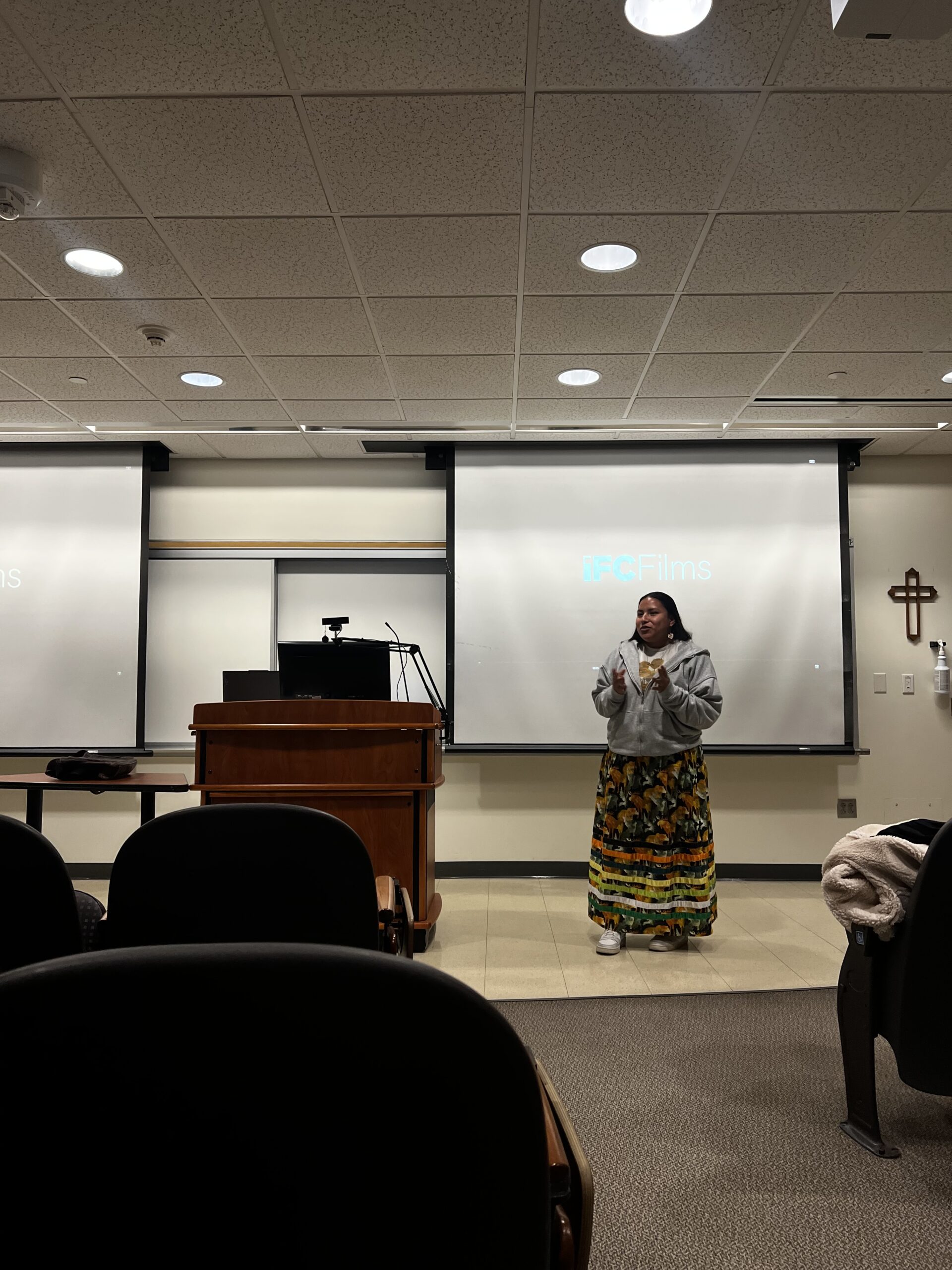
By: Chelsea Zhao
Poor technical preparation and human error created problems at this month’s Iowa Democratic caucuses, according to Dominican experts.
But some of those experts disagree on the long-term political implications.
App problems led to a day-long delay in reporting the results from the Feb. 3 caucuses, competing claims of victory, renewed doubts about election security and a major embarrassment for the Iowa Democratic party.
The lack of preparation and testing, and overconfidence in the system laid the groundwork for the mess, Dominican professors agree.
Computer Science Professor Ellen Alamilla said impatience was one aspect of the technological failure.
“The amount of preparation that takes does not always match the speed and the efficiency that we might like,” Alamilla said. “I think it’s difficult because these sorts of situations take a lot of money, a lot of time, and we don’t always want to wait.”
The IowaReporterApp was designed by Shadow Inc. to report early results of the caucus. The early results of the caucus will not change the tally of the final result. With Pete Buttigieg now leading over Bernie Sanders by a slim margin, the results can alter the outcome of the caucus.
That lack of preparation and testing combined with overconfidence by Shadow Inc. were the potential causes, according to Informatics Professor Don Hamerly.
“They have some experience with technology,” Hamerly said. “But they didn’t completely understand system development testing. They had a little more faith in what their app can do than they really could demonstrate through testing.”
The smartphone app used for the 2020 Iowa Democratic Caucus on Feb. 3 failed to report the accurate results of the votes. The precinct leaders then called the result to the caucus headquarters for volunteers to manually record into the system.
The volunteers realized that in order to login to the computers, they needed to retrieve a code from their phones, which are prohibited in the “boiler room.” The volunteers then proceeded to login through a spare iPad.
Other volunteers, anxious to confirm the results, told precinct leaders to email worksheet photographs. The email went unchecked until Tuesday morning, when the volunteers discovered 700 photographs sent in the sideway orientation.
Frankie Greco, a senior Computer Science and Mathematics major, saw the event unfold on social media. He is currently taking a class on App Development and learned that awareness of the device is key in this technological failure.
“There’s the idea that you need to be very thorough, you need to be aware of the scenarios that your app could be running in,” Greco said. “All types of devices, all types of things like that. That awareness is something that they lacked in this scenario in that it was kind of hammered in the class: how we have awareness of what you are coding for, who your audience is, what type of device they will have. So that’s a neat little connection.”
Steven Endres, Dominican’s director of online program development, contrasted the Iowa mess to Dominican’s process.
“Here at Dominican, when we change or put new technology in place, the entire I.T. Department meets as a team twice a week for the sole purpose of discussing projects and changes to our system that are taking place and making sure that we are putting the right technology in place but also that we are adequately communicating with our stakeholders, involving them in decision making and making sure that there’s adequate training that is associated with any changes that impact users across the university,” he said.
Aaron Zerhusen, assistant professor of Mathematics, mentioned that this issue might have impact on people’s trust of the system.
“I think the real danger to something like this isn’t the idea that the election itself will be fixed,” Zerhusen said. “It undermines people’s trust in the election process.”
David Dolence, assistant professor of Political Science, believes the app failure will not undermine any trust in the election system. He thinks people will not have serious thoughts about the incident in the long run.
“I mean, I think it’s a funny story,” Dolence said. “For most people, it’s just a funny story. I think for most people it doesn’t change the political landscape. They don’t think the Democrats are incompetent. They don’t think the elections are corrupt”.
As Iowa attempts to repair the damage and inaccuracy from the app failure, Zerhusen considers the incident a learning opportunity for Nevada’s upcoming caucus on Feb. 22. He mentioned stress test, a process of determining a device’s maintenance of effectiveness under unfavorable conditions, as a positive direction to perfect the system.
Endres agreed, he also noted the human aspect of the issue and technological preparedness for similar issues in the future.
“I will call it an executive lesson out of this scenario is that good leaders have solutions waiting for problems to occur,” Endres said. “There are conflict stories about how events unfolded and I’m sure further investigations will surface a lot of the truth of what happened.”



